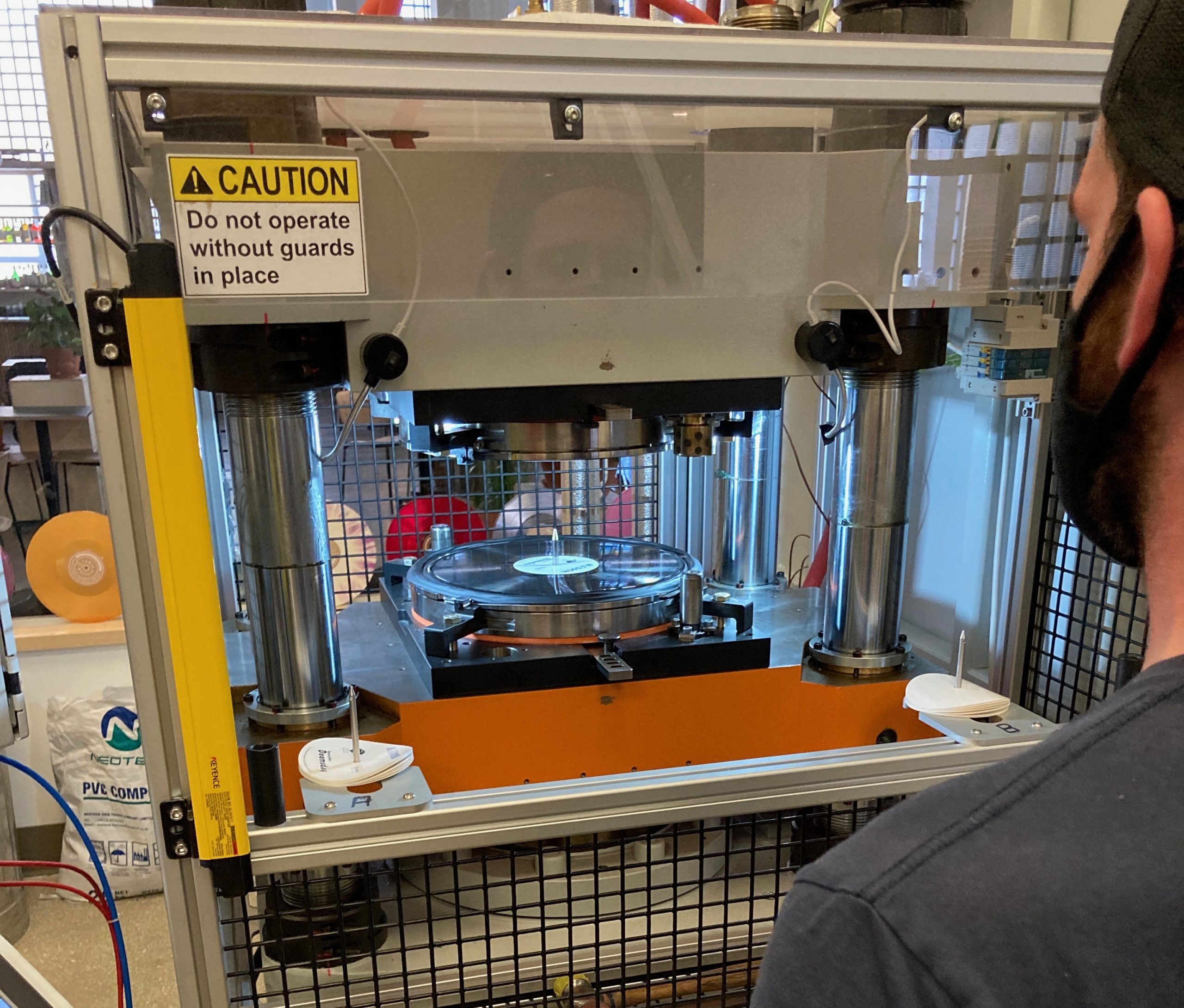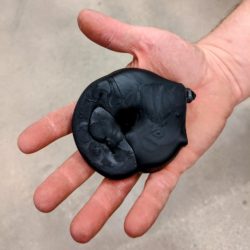The Vinyl Renaissance Bodes Well For Music And Manufacturing
- December 7, 2021 -
from the desk of Cassidy Ann, Citizen Vinyl Staff Producer

Vinyl records are having a bit of a revival, you might have heard.
Sales have been rising steadily over the past decade. The pandemic drastically turned up the volume on that trend. In just the first six months of 2021, vinyl saw a 108 percent increase in sales, according to industry analyst MRC Data. Last year, vinyl records surpassed CD sales for the first time.
“This new and unprecedented demand has kept Citizen Vinyl’s existing presses at full capacity since we opened,” Citizen Vinyl founder and CEO Gar Ragland said. “It has also given us the opportunity to entertain further expansion, beyond our original vision.”

A “puck” of vinyl before it heads to the press where it’s heated and stamped under 2,000 PSI of pressure.
Citizen Vinyl’s manufacturing facility started pressing records during the pandemic, in October 2020. The surge in demand for vinyl has spurred faster expansion than originally anticipated, Ragland said. The company is already preparing to add another press machine and shift its packaging operations to another part of the building, to make room.
“Me personally, I had no idea this level of growth was going to happen,” Seth Alder, Citizen Vinyl manufacturing technician, said. “But, it’s all part of the plan, we believe the plant will top out at four presses.”
Citizen Vinyl’s plant currently houses one manual press and one automatic press. The machines do the same core job — applying heat to melt vinyl and pressure to stamp it into a record. The manual machine requires an operator (human) to remove the pressed vinyl and place it on a trimmer. The trimmer machine slices off the excess edges that spilled over, like batter that oozes out of a waffle iron. The automatic machine eliminates the human component of that process, churning out records twice as fast. Alder says the automatic press is ideal for mass production, but it also comes with risks.
“Because if there’s an error, you can make a lot of bad records,” Alder said.
After pressing, records pass through inspection and packaging. Then they’re shipped out to record stores and adoring listeners worldwide.
That’s where the pandemic has thrown another curveball for the vinyl manufacturing industry. International shipping delays means turnaround times from pressing to shipping are taking longer than usual. That’s had an effect on the PVS pellets used to make records, which are imported from Thailand. Alder says prices for the material rose during the pandemic, forcing manufacturers to increase prices accordingly. Alder says prices are expected to rise again this month.
While the industry navigates the logistical hurdles, the demand holds promise for the future of music and manufacturing.
“The resulting growth has been very exciting for us as a startup, yet challenging nonetheless. These ‘growing pains’ are the challenges you want to have as a new business,” Ragland said.




